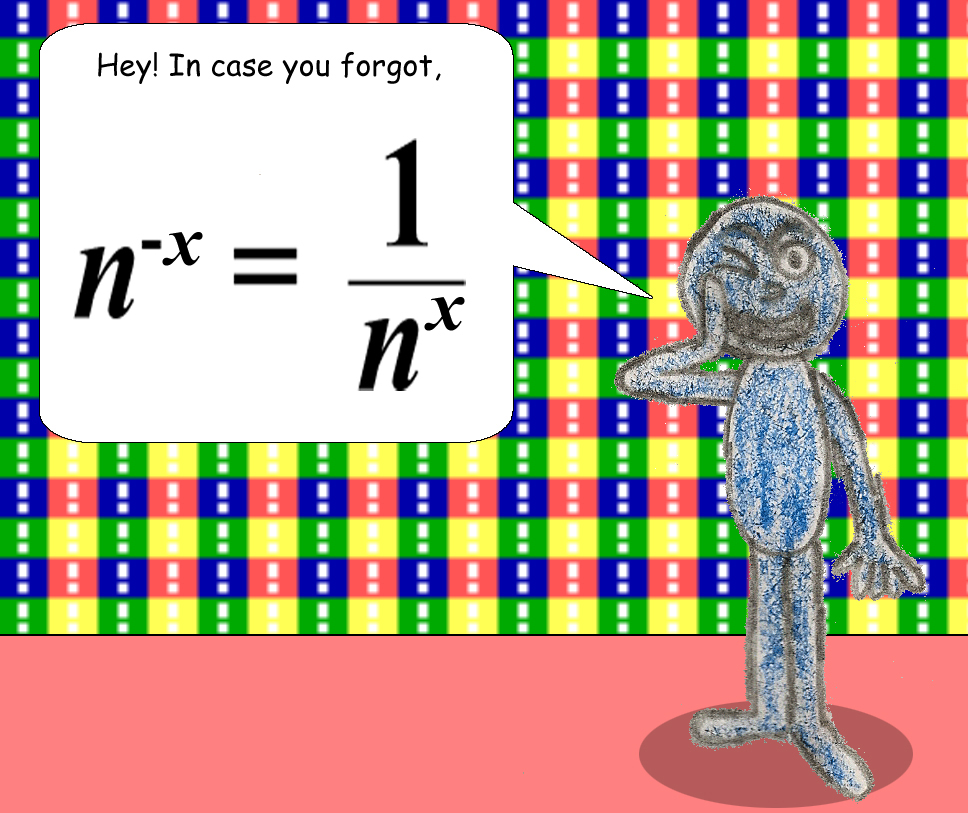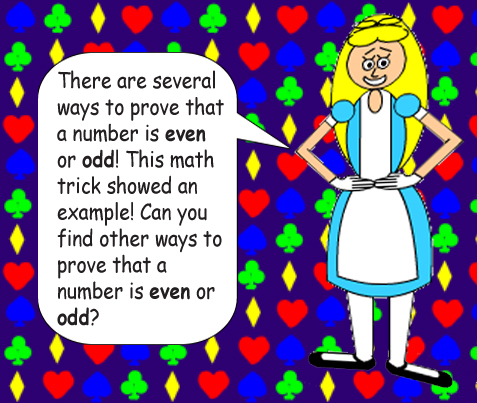Fraction Frantics
It's a well known fact that 1/x is the reciprocal of x. However:
1 ÷ (1/x) = x itself!
Note: x isn't equal to zero since division by zero is technically undefined.
If you add another 1 & another division sign, (don't forget to use parentheses!) you get:
 1 ÷ (1 ÷ (1/x)) = 1/x
1 ÷ (1 ÷ (1/x)) = 1/x
Now you're back at the reciprocal!
It depends on how many 1's, division signs & parentheses you have what the correct quotient will be! (Yes, the 1 in "(1/x)" counts as one of them!) If the number of 1's is odd, you get 1/x; if the number of 1's is even, you get x. Don't forget that each opening parenthesis "(" must have a closing parenthesis ")".
Another thing about this math trick:
1/x = x-1, so (x-1)-1 = x1 = x.

If exponents are negative, then you're supposed to divide the base by itself (x number of times) instead of multiply. The base is the number that you're multiplying(or dividing) by itself!
Parentheses can be used to multiply exponents! Remember this rule about exponents below:
(xa)b = xab
Multiplying(or dividing) 2 negatives makes a positive product(or quotient), so will multiplying an even number of negatives. An odd number of negatives will make the product negative, so:
((((x-1)-1)-1)-1)-1 = x-1 = 1/x
There are 5 negative 1's as exponents, so since 5 is an odd number, their product is negative. The parentheses are used to multiply them so that you get -1 as the exponential product.

Note: Some of the other math tricks show proof that a number is even or odd! Guess which ones they are!
Back to Index Page Back to Math Trick Menu
© Derek Cumberbatch
 1 ÷ (1 ÷ (1/x)) = 1/x
1 ÷ (1 ÷ (1/x)) = 1/x 1 ÷ (1 ÷ (1/x)) = 1/x
1 ÷ (1 ÷ (1/x)) = 1/x
